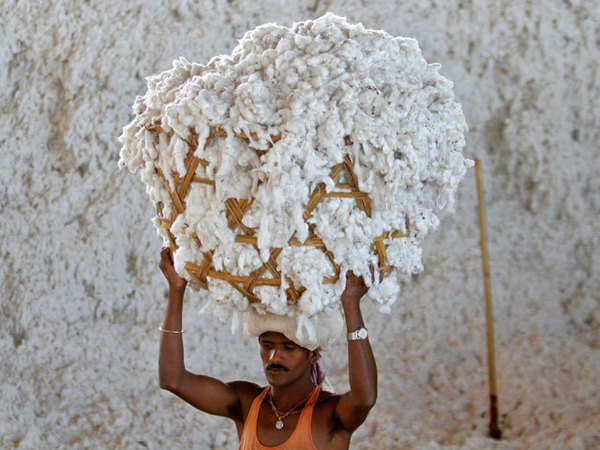Government delays QCO implementation as Indian MSMEs struggle to meet cotton standards.
The Indian government's decision to once again defer the implementation of the Quality Control Order (QCO) on cotton has sent ripples through the textile industry. This move, which pushes back the effective date to August 2025 highlights the complexities surrounding QCO implementation and its diverse impact on different segments of the industry.
QCO, necessity or a burden?
The QCO, designed to improve the quality of Indian cotton exports, mandates that ginning units meet stringent quality standards for moisture, trash, and other factors. To comply with these standards, ginning units must invest in modern machinery, a significant financial burden for many, especially small and medium-sized enterprises (MSMEs).
While QCOs on polyester, viscose fiber, and other synthetic products have already been implemented, the repeated deferrals for cotton underscore the unique challenges faced by this natural fiber. The ginning industry, largely composed of MSMEs, has vehemently opposed the QCO, citing the substantial investments required to meet the stringent quality standards.
Table: QCQ’s impact on synthetic imports
|
Import item |
Pre-QCO import volume (2022-23) |
Post-QCO import volume (2023-24) |
Change |
|
Polyester Staple Fibre (PSF) |
150,000 tonnes (approx.) |
90,000 tonnes (approx.) |
-40% |
|
Viscose Staple Fibre (VSF) |
80,000 tonnes (approx.) |
50,000 tonnes (approx.) |
-37.50% |
The QCOs on synthetics have led to a notable decline in imports, particularly from China. This fall in imports is largely due to the stringent quality standards and the requirement for Bureau of Indian Standards (BIS) certification for imported inputs. However, as an after effect, the reduction in imports and high compliance costs has led to a rise in synthetic fiber prices.

Impact on the ginning industry
The Cotton Association of India (CAI) and other industry groups had petitioned the government to delay QCO implementation, as they feel a gradual rollout would be a better fix. The government agreed to this approach, postponing implementation by a year. This extension provides the ginning industry with additional time to modernize their operations and comply with the QCO's requirements. It also raises concerns about the long-term sustainability of the industry and the potential impact on India's cotton exports.
The QCO's deferral provides a temporary reprieve for the ginning industry, which has been struggling to cope with the financial implications of the new regulations. Many MSMEs lack the resources to invest in modern machinery, and the government's decision to delay implementation offers them more time to prepare. However, the deferral also raises concerns about the long-term sustainability of the industry. Without the QCO, there is a risk that India's cotton exports may lose their competitive edge in the global market. Moreover, the delay could hinder the modernization of the ginning industry, which is essential for improving the quality of Indian cotton.
Implications for cotton exports
The QCO's deferral is likely to have a mixed impact on India's cotton exports. On the one hand, it could provide a short-term boost to exports by allowing Indian cotton to remain competitive in the global market. On the other hand, the delay could hinder India's efforts to establish itself as a reliable supplier of high-quality cotton.
Furthermore, the deferral could create a competitive disadvantage for Indian cotton exporters compared to those from other countries that have already implemented similar quality standards. If India fails to improve the quality of its cotton, it risks losing market share to competitors.
Impact on the textile industry
The QCO's deferral also has implications for the broader textile industry. While the ginning industry may benefit from the delay, the textile manufacturers that rely on high-quality cotton may face challenges. If the quality of Indian cotton does not improve, it could lead to higher costs for textile manufacturers and reduce their competitiveness.
Moreover, the deferral could create uncertainty for investors in the textile industry. The lack of a clear timeline for QCO implementation could make it difficult for investors to assess the risks and rewards of investing in the sector. The government's decision to defer the QCO's implementation highlights the need for a more nuanced approach to addressing the challenges facing the textile industry. While the QCO is essential for improving the quality of Indian cotton, it is also important to ensure that the burden of compliance is not excessive.
The government could consider providing financial assistance and technological support to help ginning units upgrade their facilities. Additionally, the government could explore alternative approaches to improving the quality of Indian cotton, such as promoting sustainable farming practices and investing in research and development.
The deferral of the QCO on cotton is a temporary measure that provides a reprieve for the ginning industry. However, it also raises concerns about the long-term sustainability of the industry and India's competitiveness in the global cotton market. While the QCO is essential for improving the quality of Indian cotton, it is also important to ensure that the burden of compliance is not excessive. By providing support to the ginning industry and exploring alternative approaches to improving cotton quality, the government can help India establish itself as a leading player in the global textile market.
